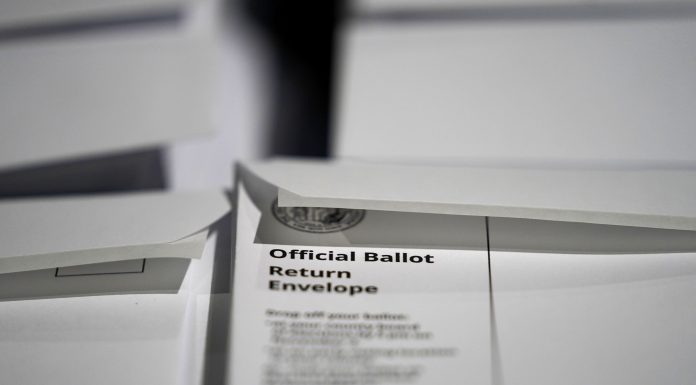(Headline USA) A North Carolina court ruled Friday that outstanding restitution, fees or other court-imposed monetary obligations can’t prevent convicted felons from voting if they’ve completed all other portions of their sentence.
The ruling, which may face appeals, could pave the way for an influx of thousands of felons to have their voting rights restored amid hotly contested races for the presidency and U.S. Senate in the battleground state.
It wasn’t immediately clear how many were affected by the ruling, but lawyers for the plaintiffs said it was in the thousands. A statement issued by Forward Justice, one of the advocacy groups involved in the challenge, said that the ruling would allow some convicted felons to start registering to vote immediately.
“This ruling is a major victory for the thousands of North Carolinians who have been denied access to the ballot due to an inability to pay financial obligations,” said Dennis Gaddy, executive director of Community Success Initiative, one of the organizations behind the legal challenge.
Asked whether the state government defendants would appeal, Laura Brewer, a spokeswoman for the state attorney general’s office, said lawyers were reviewing the ruling.
The three-judge panel of Wake County Superior Court, which was considering a challenge to state law governing the restoration of voting rights, declined to settle the lawsuit’s arguments that probation, parole and post-release supervision are also unfair impediments to voting for those who have completed their incarceration.
The judges said further proceedings were needed to address those issues.
In North Carolina, felons can register to vote again once they complete all aspects of their sentence, which can range from prison time to court fees or restitution.
In a 2-1 decision, the judges ruled that a portion of state law requiring felons to pay all monetary obligations before voting again violates the state constitution because it conditions the ability to cast a ballot on one’s financial means.
In the majority opinion, the judges note that the state constitution requires that one’s property, or financial means, must not affect their ability to vote.
Yet, under current state law, “the ability for a person convicted of a felony to vote is conditioned on whether that person possesses, at minimum, a monetary amount equal to any fees, fines and debts assessed as a result of that person’s felony conviction,” the judges wrote in the opinion.
Therefore, they ruled that the provision of state law regarding the payment of financial obligations violates the equal protection clause of the state constitution.
A separate preliminary injunction issued Friday bars the state from stopping felons from registering to vote if the only remaining portion of their sentence is satisfying a monetary obligation.
An attorney for the plaintiffs has previously told the judges that an estimated 56,000 felons who completed their incarceration still couldn’t vote because of other unfinished aspects of their sentence. It wasn’t immediately clear how many of those were prevented from voting solely because of monetary obligations and would benefit from Friday’s ruling.
Adapted from reporting by the Associated Press.

